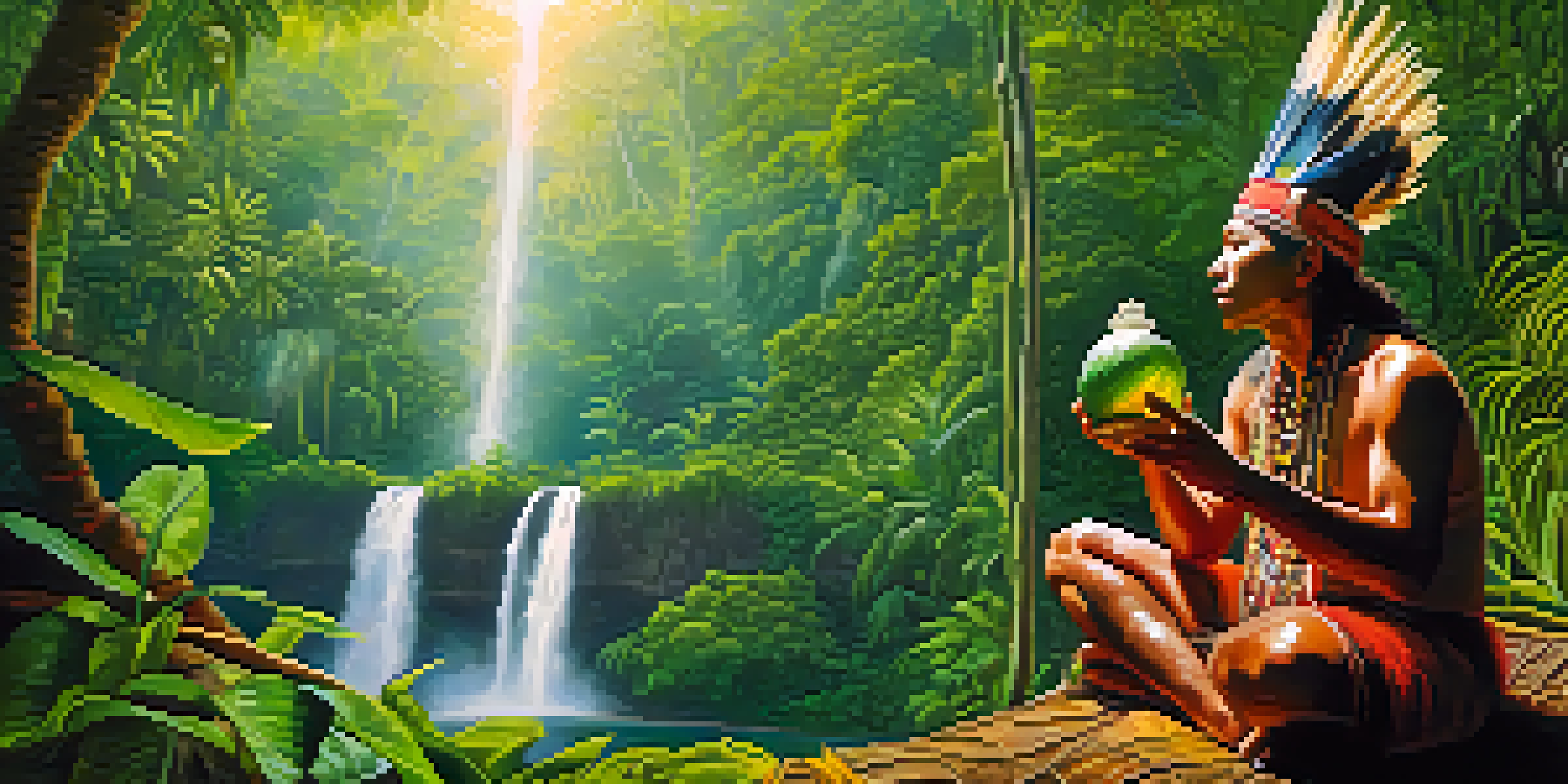The Role of Indigenous Knowledge in Ayahuasca Practices

Understanding Ayahuasca: A Cultural and Spiritual Journey
Ayahuasca is a powerful psychoactive brew traditionally used by Indigenous peoples in the Amazon. It’s made from the Banisteriopsis caapi vine and the Psychotria viridis leaf, creating a unique combination that facilitates deep introspection and spiritual experiences. For many, Ayahuasca is not just a substance; it’s a sacred practice embedded in cultural rituals. Understanding its significance requires a look into the rich tapestry of Indigenous knowledge that surrounds it.
The Roots of Indigenous Knowledge in Ayahuasca Practices
Indigenous knowledge refers to the insights and wisdom passed down through generations within Indigenous communities. In the context of Ayahuasca, this knowledge involves understanding the plants, their properties, and the spiritual connections they foster. It’s often intertwined with the community’s history, beliefs, and practices, shaping how Ayahuasca is used in rituals. This ancestral wisdom plays a critical role in ensuring the safe and respectful use of Ayahuasca.
Cultural Roots of Ayahuasca Practices
Ayahuasca embodies Indigenous knowledge, intertwining spiritual connections and traditions passed down through generations.
The Role of Shamans in Ayahuasca Ceremonies
Shamans, or curanderos, are central figures in Ayahuasca ceremonies, acting as guides through the experience. They possess deep knowledge of the plants and the spiritual world, often using songs, chants, and rituals to enhance the ceremony. Their role is not just to administer the brew but to create a safe environment for participants to explore their inner selves. This guidance is crucial, as the Ayahuasca experience can be intense and transformative.
Cultural Significance of Ayahuasca in Indigenous Communities
For Indigenous communities, Ayahuasca is more than a psychoactive plant; it’s a bridge to the spiritual realm and a means of connecting with ancestors. These ceremonies often address communal issues, healing, and the preservation of cultural identity. As the world becomes more interconnected, the significance of Ayahuasca practices is gaining recognition beyond its traditional roots. This cultural significance underscores the need to respect Indigenous knowledge and practices.
Role of Shamans in Healing Ceremonies
Shamans serve as essential guides in Ayahuasca ceremonies, using their deep knowledge to create safe spaces for transformative experiences.
Modern Adaptations: Ayahuasca Beyond Indigenous Cultures
In recent years, Ayahuasca has gained popularity among non-Indigenous people seeking spiritual awakening or healing. While this has led to a broader understanding of Ayahuasca, it also raises concerns about cultural appropriation and the commercialization of sacred practices. Many Indigenous communities are advocating for the protection of their traditions and the respectful integration of outsiders. It’s essential to approach these practices with sensitivity and an understanding of their cultural context.
Ecological Wisdom: Sustainability in Ayahuasca Practices
Indigenous knowledge encompasses a profound understanding of ecological balance and sustainability. As demand for Ayahuasca grows, this wisdom becomes crucial in ensuring that the plants used are harvested responsibly. Practices rooted in respect for the environment help maintain the delicate ecosystems of the Amazon rainforest. This approach not only protects the plants but also preserves the cultural practices associated with them.
Balancing Tradition and Modern Interest
As Ayahuasca gains popularity among non-Indigenous people, it's crucial to respect its cultural significance and protect Indigenous practices.
Healing Through Ayahuasca: Mental and Spiritual Benefits
Many participants report transformative healing experiences from Ayahuasca ceremonies, addressing issues like trauma and addiction. These benefits are often linked to the spiritual insights gained during the journey, guided by Indigenous knowledge. However, it’s important to approach these experiences with caution and respect for their cultural origins. Understanding the context helps deepen the healing experience and acknowledges the wisdom of Indigenous practices.
The Future of Ayahuasca: Respecting Indigenous Knowledge
As interest in Ayahuasca continues to grow, the importance of respecting Indigenous knowledge cannot be overstated. This involves not only honoring the traditions but also supporting Indigenous communities in their practices. By recognizing the value of their wisdom, we can ensure that Ayahuasca remains a sacred practice rather than a commodified experience. The future of Ayahuasca relies on a collaborative approach that respects both its cultural roots and the seekers of its profound insights.